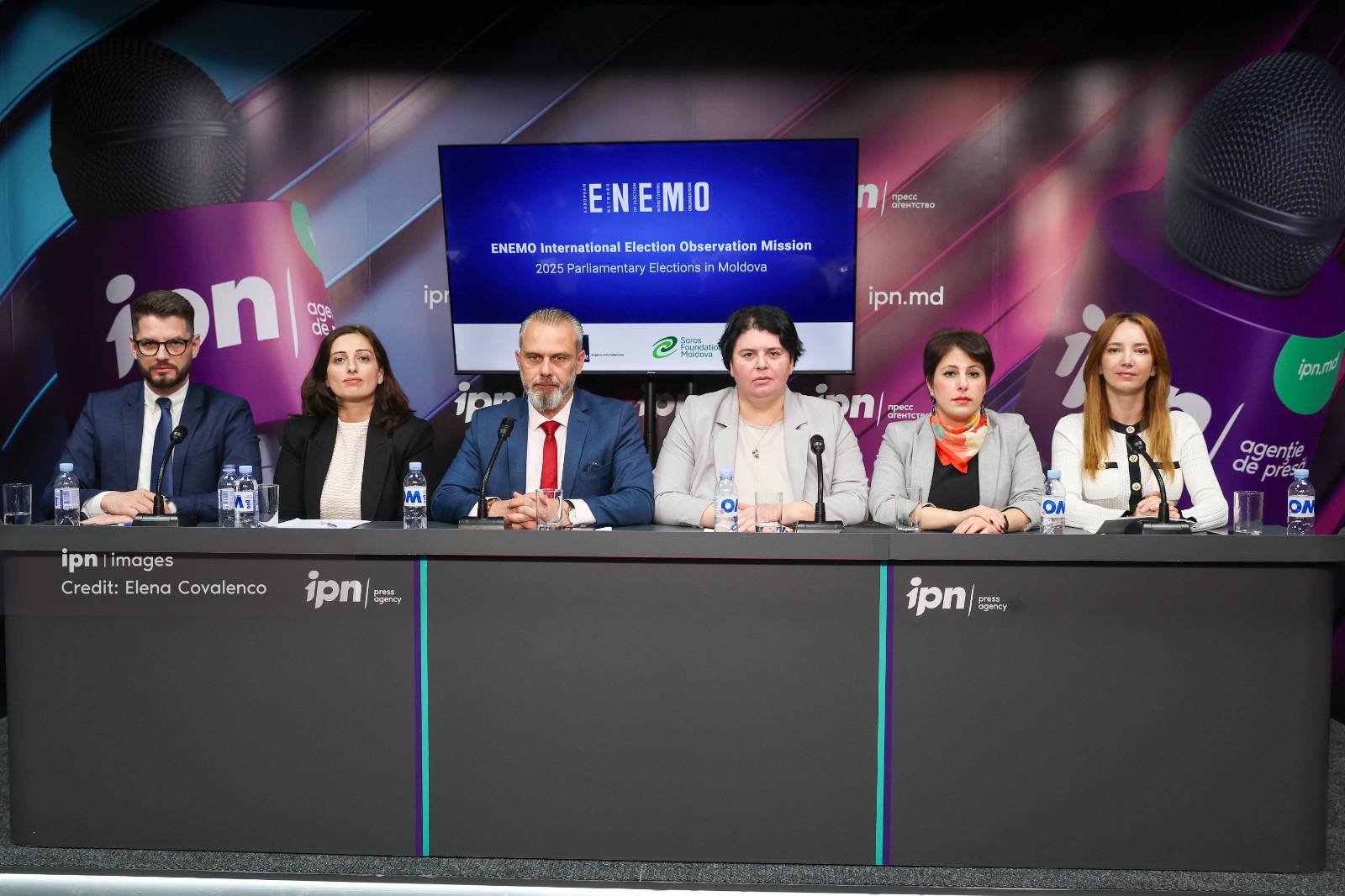Mihaela Ciobanu
The parliamentary elections on September 28 took place in a polarized climate, marked by disinformation campaigns and external involvement, according to the preliminary findings of the mission of the European Network of Election Monitoring Organizations (ENEMO). The conclusions were presented on Monday, September 29, at a press conference.
According to the mission’s experts, the online environment is considered the greatest threat to the integrity of the electoral process, being the main channel for manipulation and hidden financing. Media analyst Maja Milikic noted at the press conference that “the online space has become the main arena for interaction, but also the main channel for manipulation, disinformation, and hidden financing, becoming the greatest threat to the integrity of the electoral process.
Experts also pointed out that, despite important steps towards alignment with European standards, the legislative and institutional framework remains incomplete when it comes to media regulation. Maja Milikica pointed out that “although legislative reforms in line with European standards and initiatives on ownership transparency have been adopted, there are still gaps in the regulation of online media and the print media.” According to her, “together, all these factors have weakened the media’s ability to fully protect democratic accountability.”
“The media sector in Moldova is pluralistic in form, but fragile in practice. Traditional media remain structurally weak, constrained by financial precariousness, uneven enforcement of regulations, and perceptions of political influence. Regional disparities have further limited inclusion,” the expert added.
According to political analyst Mariam Chubabria, the election campaign was active and competitive, but extremely polarized, with negative messages, personal attacks, and mutual accusations of corruption, foreign influence, and abuse of power. “Disinformation, both organic and coordinated, was recurrent and included narratives that questioned Moldova’s European path, portrayed opponents as being controlled from abroad, and spread false statements about economic and security policy. Some candidates engaged in negative campaigns,” the political expert said.
At the same time, presenting the overall assessment of the electoral process, Dritan Taulla, head of the Mission, drew attention to the difficult environment in which the election took place: “The parliamentary elections on September 28 took place in a polarized context, against a backdrop of persistent misinformation and disinformation, with foreign influence and other hybrid threats aimed at shaping public narratives.”
ENEMO announced that it will publish a detailed final report on the election in about two months.
